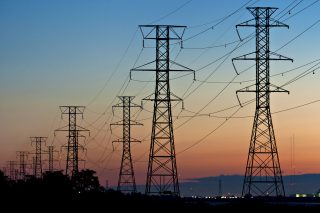Last week, President Muhammadu Buhari assented to 16 constitution alteration bills. The signed bills include devolving more power to Nigerian states, empowering them to take charge of their growth and granting them autonomy in major areas like electricity, railways, and the judiciary.
Since Nigeria transitioned into a democratic government, there have been efforts to move these items from the exclusive list, which puts them solely under the aegis of the Federal government, to the concurrent list, which grants states autonomy over them. But, all efforts have proven abortive.
The new bill is expected to significantly promote local economic growth and development across all identified quarters, but one which stands out is the anticipated transformation in the power sector. The fifth alteration bill no. 33, Devolution of Powers (National Grid System), allows Nigeria’s 36 states to generate, transmit, and distribute electricity in areas covered by the national grid.
Nigeria is a heavily power-deficient country, yet it is endowed with large oil, gas, hydro and solar resources, and it has the potential to generate 12,522 MW of electric power from existing plants. According to the World Bank, about 85 million Nigerians (43% of the population) do not have access to grid electricity, making it the country with the largest energy access deficit globally. Despite the privatization of the power sector in 2013, expected to herald a positive transformation, it continues to perform abysmally. Ten years after, the “Giant of Africa” is yet to generate up to 6000MW for its over 200 million citizens.
Now that states have been granted autonomy for power generation, there are high hopes that the power sector, which has suffered long-standing problems related to inadequate infrastructure, unreliable electricity supply, and a lack of investment, would be revived.
A state like Lagos, the commercial nerve centre of Nigeria has been optimistic about the bill before now and had launched an electricity policy, published its off-grid strategy, presented its Integrated Resource Plan and drafted a law to establish what it calls the Lagos Electricity Market (LEM). States have always had the legal right to distribute electricity but were limited to areas off the national grid. And this is why, although Lagos pioneered electricity sector reform on the continent by unbundling its single state-owned electricity company starting in 2001, the LEM did not materialize majorly because of regulatory constraints.
Between 1999-2000 Lagos state, under former Governor Asiwaju Bola Ahmed Tinubu, struck an $800 million deal with Enron Power – a US power company, to solve the electricity problem in the state. The controversial project was slated for completion in two phases, with the 1st phase generating 90 megawatts (MW) of electricity and the second involving the building of a new 5609-MW gas turbine power plant. However, this plan was aborted during former President Olusegun Obasanjo’s administration because Lagos did not have constitutional backing to embark on such a power project, which was then an item on the exclusive list.
Today, the state’s electricity needs are met by approximately 16,000MW of electrical capacity comprising 1000MW from the grid (and in turn, this is supplied 25% by hydroelectric and 75% by natural gas thermal plants). On the other hand, the 15,000MW – the off-grid generator fleet that Lagos is dependent on is powered almost entirely by distillate fuels, and a small percentage is generated by renewables and an even smaller percentage by natural gas. As Lagos’ population continues to increase, so are the needs of the state. So the idea of a LEM is critical to the economy.
The state government said it is committed to achieving 1GW of solar energy in Lagos by 2030 with an engagement with the World Bank for suitable funding. With the creation of the Lagos Electricity Market, the state hopes to fulfil its potential as Africa’s model mega city. Similarly, some other states are on a quest to generate reliable power for their people.
Good morning Lagos.
A few days ago, President @MBuhari signed bills granting states more autonomy in key areas like electricity, railways, and the judiciary, empowering Lagos to take charge of our own growth.
Thank you, Mr. President.
The Constitutional Alteration Bill No. 33…
— Babajide Sanwo-Olu (@jidesanwoolu) March 21, 2023
Interestingly, this bill could pave the path for a more inclusive, sustainable and diverse power sector. As earlier stated, Nigeria is a country with diverse underexplored renewable energy resources, and different regions of the country have varying strengths in terms of renewable energy sources.
For example, the northern part of Nigeria, particularly the northeast and northwest regions, has abundant solar energy resources. This is because these regions receive high levels of solar radiation throughout the year, making solar power a viable and cost-effective source of energy. Not just that, it also has a good potential for wind energy, and biomass, particularly from agricultural waste.
On the other hand, the South-south and Southeast region is blessed with abundant oil and gas reserves, which can be used to generate thermal power. Its significant potential for biomass energy can also be derived, particularly in the form of palm oil waste. Being home to several large rivers, including the Niger and Ogun Rivers, the southwest region of Nigeria has significant potential for hydroelectric power generation.
Generally, the new bill is a step in the right direction. However, the journey to a reliable and stable power supply in the country is a marathon, not a sprint. In a few years, if maximized, Nigeria’s power generation must have improved commendably, leading to robust economic growth.








